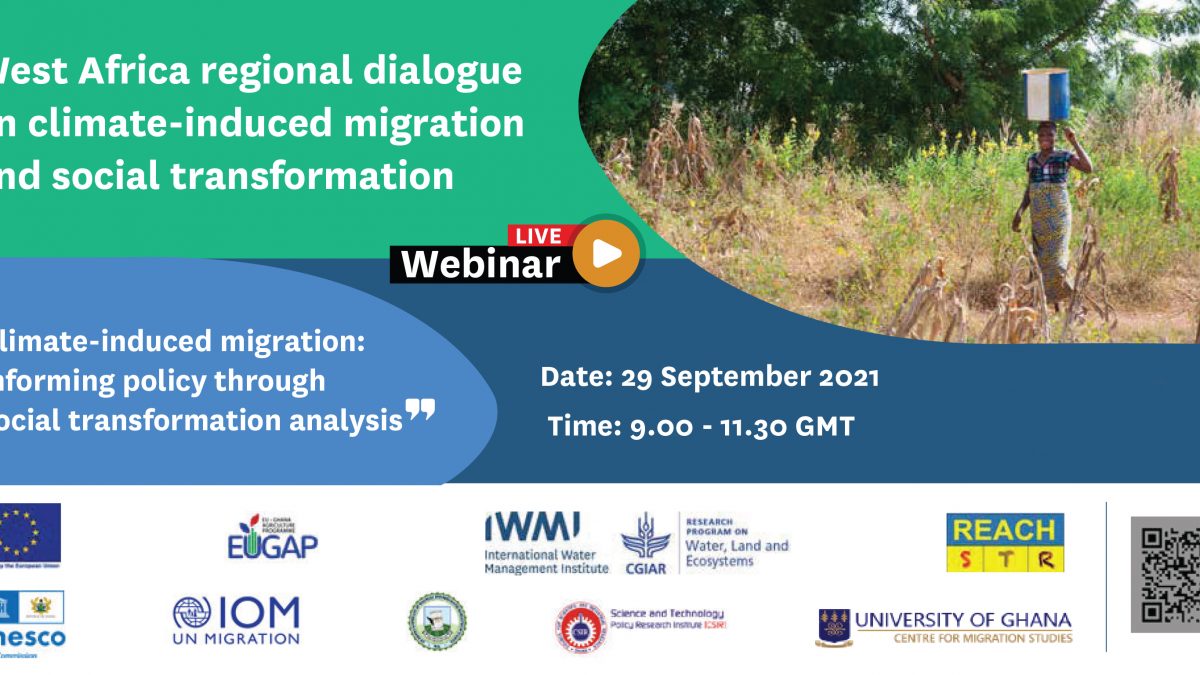- Login to ASPnet | Ghana Commission for UNESCO | Government Agency Responsible for the coordination of Ghana's contributions to and presence at UNESCO
West Africa regional policy dialogue on climate-induced migration and social transformation

The influence of climate change and variability on migration is likely to intensify in the coming decades, especially in vulnerable areas. Migration is used as one of the possible responses to climate risks in West Africa. However, not every household affected by the changing climate will respond with a migrating strategy. Others may not be able to or may choose not to migrate due to dynamics in poverty incidence, remoteness, ill-health and age. What is critical now for policymaking is determining the underlying non-climatic (e.g. socio-economic, technological, political, demographic) factors which are exacerbating climate vulnerabilities.
Join our experts as we discuss how, where, and why climate is intersecting with social transformation factors to influence climate vulnerabilities and migration outcomes, and the implications of these for migration polices and interventions in West Africa.
Specifically, the dialogue will provide the space to:
- discuss climate-induced migration situation through the lens of social transformation in West Africa;
- identify gaps and dysfunctionalities in the policy space;
- provide recommendations for effective policy formulation and implementation on climate-induced migration issues.
The policy dialogue is organized by the International Water Management Institute, with funding from the European Union Ghana Agriculture Programme and the CGIAR Research Programme of Water, Land and Ecosystems. It is co-hosted with the International Organization for Migration (IOM) and the Ghana Commission for United Nation Educational, Scientific and Cultural Organization and Management of Social Transformation (MOST) programme, and supported by Science and Technology Policy Research Institute of the Council for Scientific and Industrial Research, Centre for Migration Studies at the University of Ghana, and Simon Diedong Dombo University of Business and Integrated Development Studies.
Date(s) and Time(s): 29/09/2021 | 9:00 am – 11:30 am
Location: Online Only
